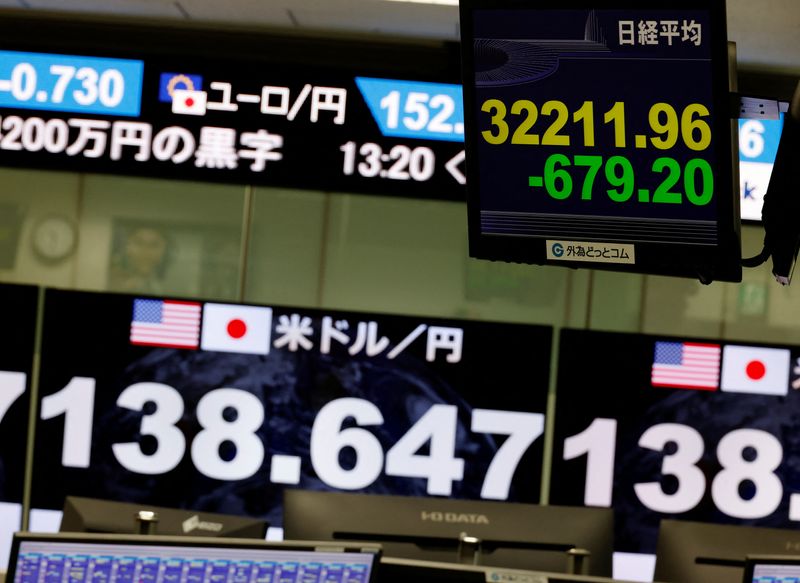By Kevin Buckland
TOKYO (Reuters) - Japan's benchmark bond yield soared to a nine-year high and the yen rallied after the Bank of Japan's decision on Friday to conduct its yield curve control (YCC) policy more flexibly.
The BOJ maintained guidance allowing the 10-year yield to move 0.5% around the 0% target, but said those would now be "references" rather than "rigid limits".
To drive the point home, in a second fixed rate bond-buying operation on the day, the central bank offered to purchase the 10-year note at a yield of 1.0%, instead of the previous rate of 0.5%.
"By raising the upper limit for the fixed rate operations to 1%, the BOJ effectively widened the 10-year target band," said Naomi Muguruma, senior market economist at Mitsubishi UFJ (NYSE:MUFG) Morgan Stanley (NYSE:MS) Securities. "It made a stealth move in that sense."
Policymakers left the short-term interest rate target at -0.1.
The 10-year JGB yield spiked to 0.575% for the first time since September 2014 before easing slightly to 0.55%. Ten-year JGB futures dived to the lowest since mid-March at one point.
The yen, which swung violently immediately after the announcement as traders struggled to fully grasp its implications, eventually extended gains against the dollar to be up as much as 1.05% at 138.05. It had initially flipped to a 1.2% loss, sliding as far as 141.20. It last stood at 139.08.
The announcement came right before stocks reopened for the afternoon session, and the Nikkei share average began by aggressively paring the morning's losses before then reversing course and diving as much as 2.6%. The benchmark index ended the day down just 0.4% at 32,759.23.
The Nikkei was buoyed by financial shares, with the Tokyo Stock Exchange's banking index surging 4.6% to an eight-year high on the prospect of a steeper yield curve that would revive profit from lending.
The Nikkei's top seven stocks were all banks or life insurers, led by a 8.2% jump for Resona Holdings.
"The policy decision is indeed ambiguous," which explains the initial volatility across asset classes, said Richard Kaye, a portfolio manager at Comgest, which manages $4.3 billion under its Japanese funds.
However, Kaye said he is avoiding the "tired" bank trade.
"We focus rather on the stabilisation of the yen, which has been a hostage of the sovereign yield gap with the U.S., and therefore domestic economy beneficiaries in Japan," particularly small caps, he said.
The BOJ has been under pressure from investors all year to loosen yield controls, with wages and consumer prices rising. Data released on Friday showed core consumer inflation in Japan's capital remained well above the central bank's 2% target.
In its updated outlook report, the BOJ raised this year's core consumer inflation forecast to 2.5% from the 1.8% projected in April, but cut its fiscal 2024 forecast to 1.9% from 2.0% and maintained its 1.6% estimate for 2025.
At the same time, the central bank acknowledged that price expectations were showing signs of heightening again.

"Even though market reaction is choppy, this is a clear sign that the BOJ will take mini steps to tighten policy if inflation pressures remain," said Charu Chanana, a strategist at Saxo Markets in Singapore.
"Effectively, markets will test the 1% cap and that can be bullish for the yen."